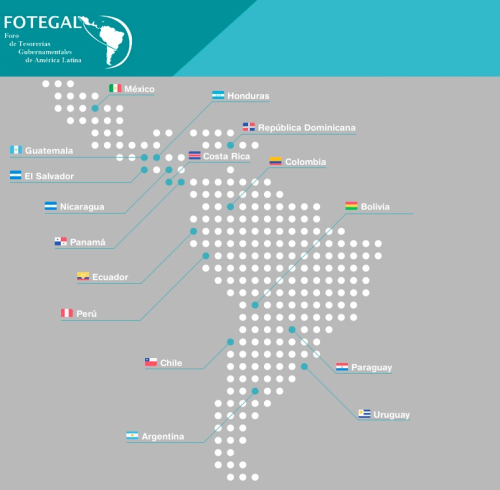Posted by Mario Pessoa[1]
The Costa Rican Ministry of Finance recently organized the eighth Latin American Treasury Forum (FOTEGAL) together with the International Monetary Fund (IMF), the Inter-American Development Bank (IDB), and the World Bank[2]. FOTEGAL aims at providing a permanent dialogue for technical discussions and exchange of experiences among the national treasurers of the region. The annual seminar has been a key component of the IMF’s technical assistance program and a testimony of significant improvements in treasury management in Latin America.
The Vice President and Minister of Finance of Costa Rica, Mr. Helio Fallas Venegas, in his opening remarks emphasized the importance of FOTEGAL in exchanging knowledge and identifying opportunities to improve treasury management. The Minister highlighted the role of strong treasuries in controlling the fiscal balance, strengthening budget execution, and improving the coordination of debt management and budgetary control.
Mario Pessoa and Jose Adrian Vargas from the IMF’s Fiscal Affairs Department presented the preliminary results of a study[3] that analyzes payment practices in the region, particularly the control of expenditure and tax refund arrears. The study concludes that arrears are generally not very large in most of the countries. In some cases, however, expenditure arrears have accumulated to more than 2.5 percent of GDP, largely because of decreasing revenues from natural resources. Treasuries in general have not been active in controlling tax refund arrears. The study proposes a range of measures to improve arrears management. These measures include: (i) defining a legal period beyond which an obligation is considered to be in arrears (only five countries in region adopt such a definition, which ranges from 30 to 60 days); (ii) including in the country’s financial management information systems the date of the invoice and the date when the obligation is due; (iii) publishing periodically a report on expenditure arrears; (iv) adopting accrual accounting standards regarding commitment and payment obligations; and (v) improving the transparency and control of tax refunds.
Other sessions of the seminar discussed recent treasury management experiences of Turkey and Spain; the use of performance indicators; electronic payment systems; recent trends in financial technology; and operational risk management. The treasurers presented case studies of recent reforms and achievements in their countries, and discussed challenges that lie ahead.
The fifteen participating countries approved a work plan for 2017/2018 that includes new analytical studies, workshops, and the use of modern communication technologies to strengthen the exchange of information and experiences. The next seminar will be held in Argentina in September 2018.
For more information, go to FOTEGAL Webpage at: http://www.fotegal.org/
[1] Deputy Division Chief, Public Financial Management II Division, Fiscal Affairs Department, IMF.
[2] The seminar took place from July 26-28, 2017. Fifteen countries participated: Argentina, Brazil, Chile, Colombia, Costa Rica, Dominican Republic, Ecuador, Guatemala, Honduras, Mexico, Nicaragua, Panama, Paraguay, Peru, and Uruguay.
[3] This study is financed by the Swiss State Secretariat for Economic Affairs (SECO).
Note: The posts on the IMF PFM Blog should not be reported as representing the views of the IMF. The views expressed are those of the authors and do not necessarily represent those of the IMF or IMF policy.






